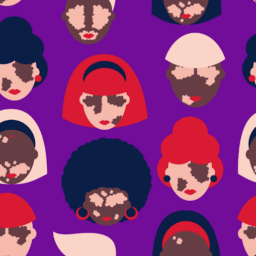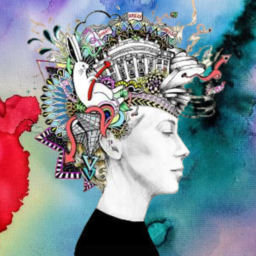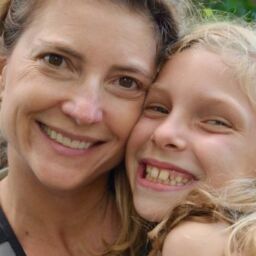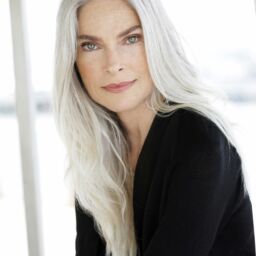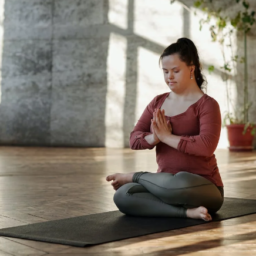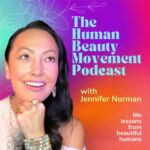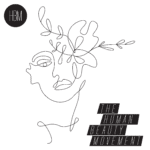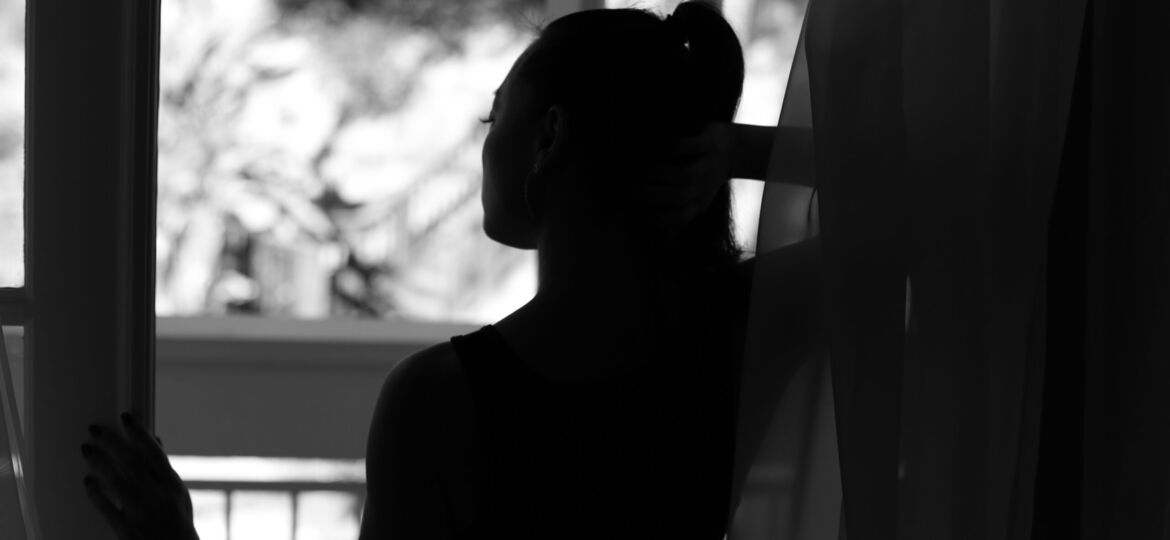
Once upon a time there was a girl. And the girl went through life. She grew, she aged, she loved, she lost, she wandered. Yet all the while inside the woman who had grown, the little girl still lived. This little girl was full of wonder, inquisitiveness, exploration and mischief, but the shell of the grown woman would not let the little girl see outside. She was trapped. The woman, hardened by life and calloused by maladies, protected the little girl. She sheltered her and kept her from feeling pain. But the woman herself was in pain. The shell of her protective coating was beginning to crack from the pressure and weight of the outside. Soon, she started wondering why she was protecting the little girl in the first place. What was she afraid of? Was it time to set the little girl free?
Perhaps we all have that little girl or boy inside us. Perhaps the protective armor we wear prevents us from feeling and being who we really are inside. Perhaps the dream of life, of possibilities and ingenuity, still exists inside us. Perhaps we act like human coffins, yet the little child inside of us is not dead. Perhaps she is very much alive and wanting you to know she is still there. How will you discover her? Will you be willing to crack yourself wide open to set your inner child free?
I’m one of those grown women who still lives with that little girl inside. I still feel the pains of my youth – the hurt feelings of being teased for my ethnicity, the humiliation I felt when I was called stupid. But I also still remember all the joys – the pride of blue ribbons, the comfort of summer campfires. These experiences shape our views, what we enjoy, and how we evolve. When we deny our inner child, we risk living a life of pretense. We suppress emotions, we guard our hearts, we fear that others might view us as weak. We in essence create a shell around us labeled “maturity” and “professionalism.” But then something triggers a memory. Buried emotions come welling back to the surface as if they were fresh. The mind has a curious way of not letting things go.
Our upbringing shapes our learnings. Our learnings shape our learnings. In particular, deep emotional pain is difficult to confront. Forgiving and forgetting is tough when we are conditioned as adults is to learn from our past mistakes. Every time we come across a similar situation, we’re triggered towards pain avoidance as a coping mechanism. It can lead unknowingly to prejudice – pre-judging someone or something based upon expectations of similarity. We all hold onto pain without realizing it. In some cases, it’s buried deep. In other cases, it’s very close to the surface. In any case, it inhibits us from living life to the fullest and feeling truly free of past burdens.
When we try to protect ourselves from ourselves, in many cases, we end up hurting ourselves more. We guard, we tense up, we defend, we shut down. But the interesting thing is when we close ourselves up to avoid pain, we also close ourselves up to accepting love. We see life through a veil of fear and reserve. We tread carefully and are all too ready to retreat if things start looking scary. When a relationship ends badly, we trap ourselves into thinking that we’re going to get hurt again, so we block out love. Then we feel alone and depressed. Or if we tried a new career path and failed, we gain a fear of future failure and embarrassment, so we shun new opportunities and stay in a box where it’s “safe”. We convince ourselves that we are unworthy of more. “More” is for the powerful, or the blessed, or the lucky, or the deserving, or the superior…we lie to ourselves and believe we are not part of those tribes.
Try this exercise with me for a moment. Close your eyes and picture that little child inside of you. Picture the hope and excitement and joy and energy of your inner child. Picture yourself unlocking your chest and letting that child step through into the world. Embrace that inner child. Let him or her know that no matter what you are going to experience all that life has to offer without reasonable fear of pain, hurt, failure or loss. Breathe. Then smile.
—
Only recently did I learn that life would be filled with lessons. Some harmless, some harmful, some painless, some painful, some joyless, some joyful. Sometimes, we don’t realize that they are lessons until much later. We don’t realize things happen that are meant to shed wisdom upon us. We sometimes can only see as far as the ends of our noses, that something or someone did something either positively or negatively, and we react given how it makes us feel.
At one point in my life, I suffered from clinical depression. I was going through my first divorce, and it felt like my life was falling apart. After years on an anti-depressant, I started feeling okay again, and so I weaned myself off the med and was able to get through daily life without it. I was fine for years, but then I fell down the abyss again after my son, then 2 years old, almost died. By some miracle he recovered, but he would become severely disabled for the rest of his life. I was diagnosed with PTSD after that, and once again went on an anti-depressant to cope.
When I was really down and depressed, there really seemed like there was absolutely no hope. Nothing anyone said or did would help. In fact, hearing other people’s advice only irritated me more and make things worse. I didn’t want advice. I didn’t want platitudes. I didn’t want to be told I should be grateful. I didn’t want Buddha quotes to tell me how I should be feeling. I just wanted to be left alone, yet I didn’t want to be left alone. The irony was that depression colored life so that I wanted everything and nothing all at once. I remember those feelings of deep moroseness so vividly, because they sometimes come to visit even now. They get triggered when I hear bad news or I’m having an off day. There were times when I truly felt like it didn’t matter if I lived or died. I would say out loud, “I’m done. I just don’t care anymore.” The idea that life would go on just fine without me seemed to validate the futility of my own unimportant existence. I would visualize the moment when others might learn about my death. They would be a little sad for a while, but then they would quickly get over it. Life would go on, and it wouldn’t matter that I even lived. It was in those moments that I found myself contemplating the purpose of life. What’s the point? Why should anyone care? If anyone really cared, I wouldn’t feel so alone. I would justify my feelings with my own sense of insignificance and malaise. Activities that once brought joy seemed meaningless. My saving grace was that when I got to feeling like life didn’t matter, I would make a pact with myself to sleep on it. Somehow, the night would bring enough stillness so that a voice of reason would be able to intervene and help me snap out of my funk by morning. I know that for some, their voice of reason doesn’t come around, and then it’s too late. As I write this, I’m praying that my words will help more people discover their voice of reason, their saving grace, to shake them awake by morning. I’m writing this in serious hope that more people believe in the myth of the inner voice to help save them from themselves. In truth, sometimes a little head game with yourself works wonders to help you cope on the journey back to yourself.
So, what were the lessons I learned from overcoming clinical depression and PTSD? First, I learned that there is very little that seems to help when you’re in the midst of personal crisis. There are a whole lot of things that people say that only make things worse. Cheer up! Be strong! Be grateful! Things could be worse! Thoughts and prayers! Looking at other women’s boss-lady Instagram feeds or Thirty Under 30 success articles just made me want to jump out my first-floor apartment window. Having clinical depression is perpetual grieving, and I learned that I just needed to allow myself to go through the process and let my emotions run their course. Second, I learned that feeling needed was lifesaving. If I didn’t feel like I had people who depended on me, I probably wouldn’t have made it. Sure, I would try and rationalize things like ‘my son has his dad, so I wouldn’t be missed’ or ‘they’d just replace me at work,’ but somehow, there was a little warm pilot light that was still kept on inside me that helped keep me going. That pilot light is you deeply knowing that in your depression, you may try and convince yourself that no one cares, but they really do. They really, really, REALLY do. You are loved, and those who love would be devastated with your loss. Third, that there is no stigma or shame in needing someone or something to lean on in life. Recognizing that you need help, asking for it and receiving it is not a sign of weakness or anything you should be embarrassed about. As a matter of fact, seeking help is one of the most courageous things you could ever do. Sure, I heard an earful about needing to go on a prescription to aid in my recovery from depression. Truth is, that it helped me not only get through my darkest times, it helped balance the neurochemicals in my system enough to allow me to function at a very high level. I know the answer to clinical depression for some is not pharmacological, I would just ask that those who are against Western medicine pause when casting judgement on others whose lives could be saved with its assistance.
Above it all, the most important thing is that we as humans recognize that we have more worth than anyone could ever place value upon. We are worthy of infinite happiness. In fact, we are infinite happiness. And that makes this bizarre and wonderful life worth living.

